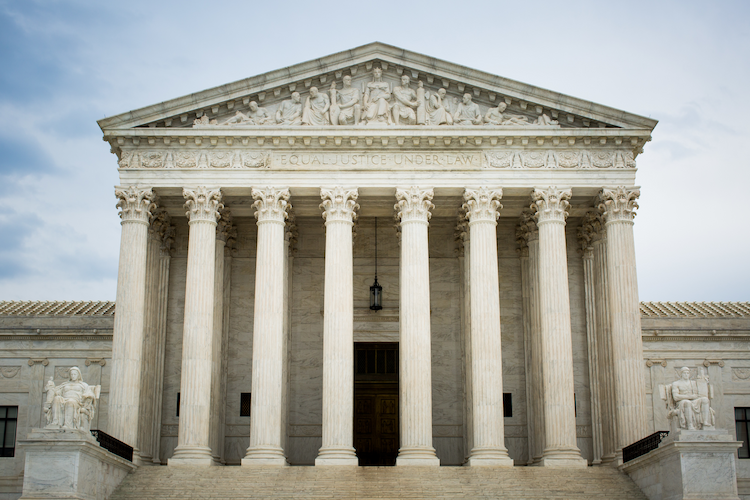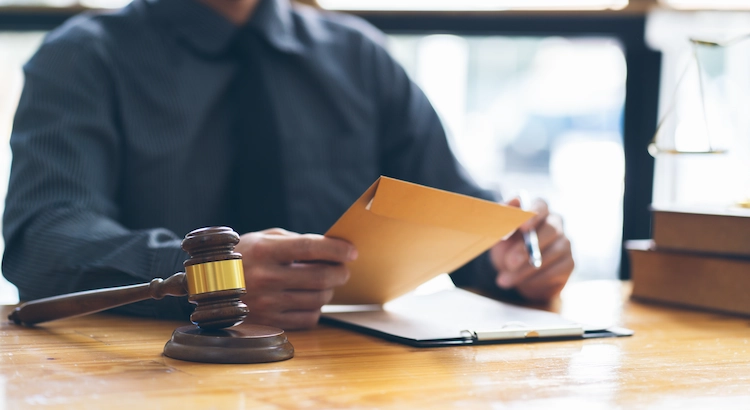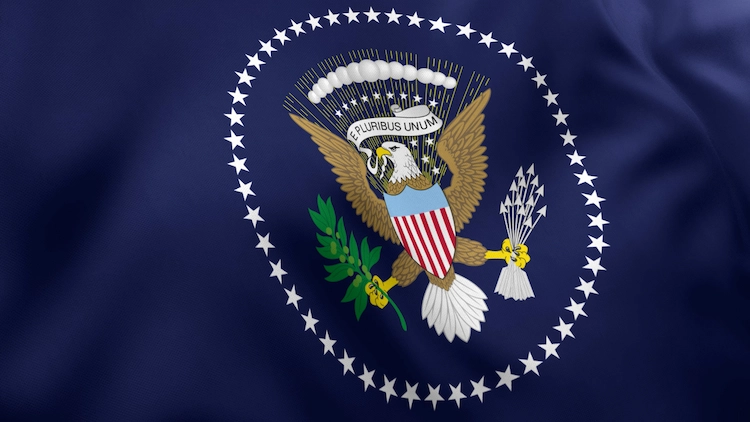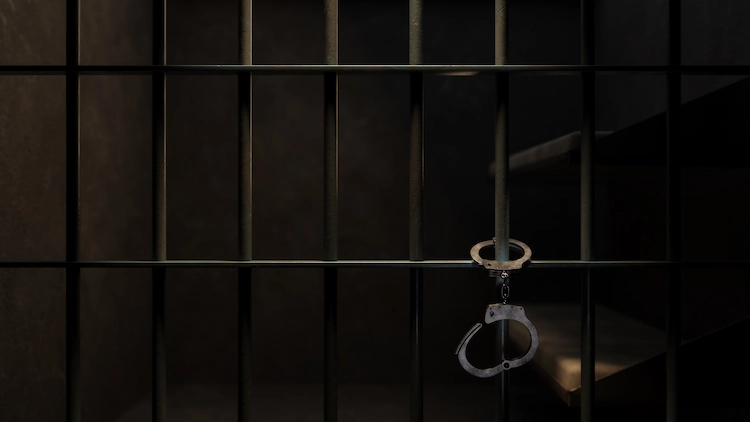Supreme Court Clarifies When Public Officials Can Be held Liable for Social Media Activity

In Lindke v. Freed, 601 U.S. ____ (2024), the U.S. Supreme Court ruled that public officials may be held liable for their social media activity in certain circumstances. The justices unanimously held that speech by a government official about job-related topics on social media is attributable to the state only if the official had actual power to speak on the state’s behalf and purported to exercise that authority when he spoke on social media.
Facts of the Case
As set forth in the opinion, respondent James Freed created a private Facebook profile sometime before 2008. He eventually converted his profile to a public “page,” which allowed anyone to see and comment on his posts. In 2014, Freed updated his Facebook page to reflect his position as city manager of Port Huron, Michigan. His Facebook profile described himself as “Daddy to Lucy, Husband to Jessie and City Manager, Chief Administrative Officer for the citizens of Port Huron, MI.” Freed still primarily posted about his personal life; however, he also posted information related to his job, such as highlighting communications from other city officials and soliciting feedback from the public on issues of concern. Freed often responded to comments on his posts, including those left by city residents with inquiries about community matters. He occasionally deleted comments that he considered “derogatory” or “stupid.”
Once the COVID–19 pandemic began, Freed posted about it, including personal posts as well as informational posts related to his job. Facebook user Kevin Lindke commented on some of Freed’s posts, expressing his displeasure with the city’s approach to the pandemic. Freed initially deleted Lindke’s comments, but later blocked him from commenting at all. Lindke sued Freed under 42 U. S. C. §1983, alleging that Freed had violated his First Amendment rights. Lindke contended that he had the right to comment on Freed’s Facebook page because it was a public forum. The District Court found that because Freed managed his Facebook page in his private capacity, and because only state action can give rise to liability under §1983, Lindke’s claim failed.
The Sixth Circuit Court of Appeals affirmed. The Sixth Circuit Court ruled that Freed was not liable because he maintained his Facebook page in his personal capacity. In reaching its decision, the appeals court held that a public official engages in state action only when the official performs a legally mandated “duty of his office” or invokes the “authority of his office.”
Supreme Court’s Decision
The Supreme Court unanimously vacated the Sixth Circuit’s decision. “When a government official posts about job-related topics on social media, it can be difficult to tell whether the speech is official or private,” Justice Amy Coney Barrett wrote on behalf of the Court. “We hold that such speech is attributable to the State only if the official (1) possessed actual authority to speak on the State’s behalf, and (2) purported to exercise that authority when he spoke on social media.”
In reaching its decision, the Court emphasized that Section 1983 provides a cause of action against “[e]very person who, under color of any statute, ordinance, regulation, custom, or us- age, of any State” deprives someone of a federal constitutional or statutory right. Section 1983’s “under color of” text makes clear that it is a provision designed as a protection against acts attributable to a State, not those of a private person
The Court also noted that while state action is often easy to spot, the line between private conduct and state action is difficult to draw. “The distinction between private conduct and state action turns on substance, not labels: Private parties can act with the authority of the State, and state officials have private lives and their own constitutional rights. Categorizing conduct, therefore, can require a close look,” Justice Barrett wrote. “A close look is definitely necessary in the context of a public official using social media.”
The Court went on to explain that determining whether Lindke’s social media activity constituted state action was challenging. Justice Barrett wrote:
The question is difficult, especially in a case involving a state or local official who routinely interacts with the public. Such officials may look like they are always on the clock, making it tempting to characterize every encounter as part of the job. But the state-action doctrine avoids such broad-brush assumptions—for good reason. While public officials can act on behalf of the State, they are also private citizens with their own constitutional rights.
According to the Court, categorizing posts that appear on an ambiguous page like Freed’s is a fact-specific undertaking in which the post’s content and function are the most important considerations. The Court provided the following additional guidance:
Hard-to-classify cases require awareness that an official does not necessarily purport to exercise his authority simply by posting about a matter within it. He might post job-related information for any number of personal reasons, from a desire to raise public awareness to promoting his prospects for reelection. Moreover, many public officials possess a broad portfolio of governmental authority that includes routine interaction with the public, and it may not be easy to discern a boundary between their public and private lives. Yet these officials too have the right to speak about public affairs in their personal capacities. Lest any official lose that right, it is crucial for the plaintiff to show that the official is purporting to exercise state authority in specific posts. And when there is doubt, additional factors might cast light—for example, an official who uses government staff to make a post will be hard pressed to deny that he was conducting government business.
Finally, the Court emphasized that the nature of the social-media technology matters to this analysis. For example, because Facebook’s blocking tool operates on a page-wide basis, a court would have to consider whether Freed had engaged in state action with respect to any post on which Lindke wished to comment.
Previous Articles
Supreme Court Pauses Order Reinstating CPSC Commissioners
by DONALD SCARINCI on August 21, 2025
In Trump v. Boyle, 606 U.S. ____ (2025), the U.S. Supreme Court granted the Trump Administration’...
Divided Court Allows President to Fire Agency Officials
by DONALD SCARINCI on
In Trump v. Wilcox, 605 U.S. ____ (2025), the U.S. Supreme Court granted the Trump Administration�...
SCOTUS Grants Death Row Inmate New Trial in Glossip v. Oklahoma
by DONALD SCARINCI on
In Glossip v. Oklahoma, 604 U.S. ____ (2025), the U.S. Supreme Court granted death row inmate Richa...
The Amendments
-
Amendment1
- Establishment ClauseFree Exercise Clause
- Freedom of Speech
- Freedoms of Press
- Freedom of Assembly, and Petitition
-
Amendment2
- The Right to Bear Arms
-
Amendment4
- Unreasonable Searches and Seizures
-
Amendment5
- Due Process
- Eminent Domain
- Rights of Criminal Defendants
Preamble to the Bill of Rights
Congress of the United States begun and held at the City of New-York, on Wednesday the fourth of March, one thousand seven hundred and eighty nine.
THE Conventions of a number of the States, having at the time of their adopting the Constitution, expressed a desire, in order to prevent misconstruction or abuse of its powers, that further declaratory and restrictive clauses should be added: And as extending the ground of public confidence in the Government, will best ensure the beneficent ends of its institution.





